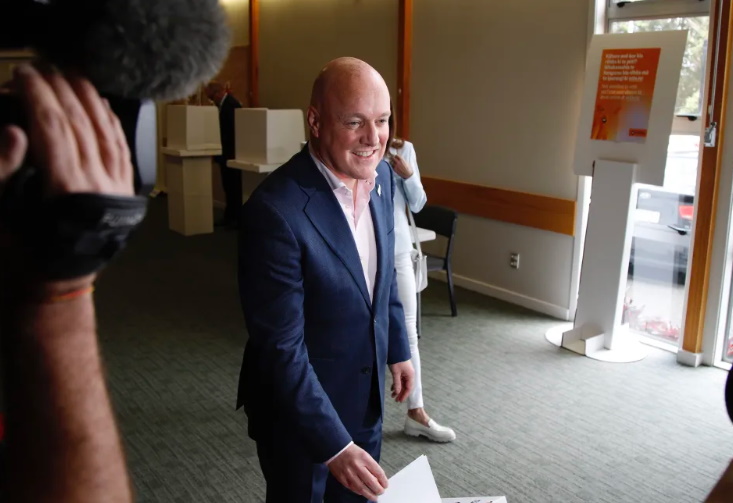
The prime minister says he expects the Electoral Commission to speed up the official vote count after an election.
That is despite the Electoral Commission telling the Justice committee on Thursday the changes proposed by the government's Electoral Amendment Bill will not make official election results available any sooner.
Christopher Luxon said it does not undermine what the government is trying to do.
"We expect them to speed up the voting - pretty simple. We're living in 2025 and I just suggest that that vote can be counted a hell of a lot faster than what we've experienced in New Zealand," Luxon said today.
"Go look at other western economies around the world and how fast they count their vote. We must be the slowest folk on the planet."
He said his expectation was the Electoral Commission "go back and look at their process" and "do everything they can to move heaven and earth to count the vote in New Zealand very, very quickly".
Luxon said New Zealanders should not take democracy for granted, and they can get registered in advance of an election.
Labour's Duncan Webb said the prime minister was "intentionally tilting the political playing field in his favour".
He said more than 200,000 people relied on enrolling during early voting or on election day last election, and he was "intentionally making it harder for them to vote".
"Luxon should reverse these changes immediately and improve people's access to democracy."
The Justice Committee was considering the legislation the government has proposed partly to improve the timeliness of the official vote count. The majority of submissions have been in opposition.
Chief electoral officer Karl Le Quesne explained to the committee on Thursday the post-election process, part of which was about determining who was eligible to vote and what votes can be counted.
He was asked by Webb how many days sooner the official results would be available based on the changes proposed.
"Based on the forecast we've done in the changes that are proposed, we don't think we can deliver it sooner than 20 days."
To clarify, Webb asked, "There will be no difference?"
Le Quesne responded "no" because people who update their enrolment after writ day and before the 13-day close-off will still have to do a special vote.
"That's because we're forecasting that there'll still be around 700,000 special votes, we've got to run through all these integrity checks."
Webb asked why the changes were being made at all, Le Quesne said, "this is not a change that we recommended."
Le Quesne explained if the changes were not made, the Commission would still aim to get all the enrolments processed by the fourth day after the roll closed.
"We would just have to resource up in a much bigger scale than otherwise."
On whether more funding was being considered, Minister of Justice Paul Goldsmith said those decisions were made as part of the official budget process.













